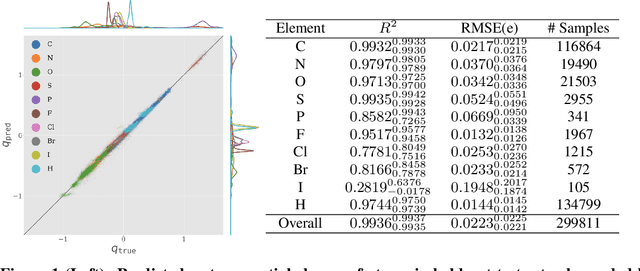Graph Nets for Partial Charge Prediction
Paper and Code
Sep 17, 2019
Atomic partial charges are crucial parameters for Molecular Dynamics (MD) simulations, molecular mechanics calculations, and virtual screening, as they determine the electrostatic contributions to interaction energies. Current methods for calculating partial charges, however, are either slow and scale poorly with molecular size (quantum chemical methods) or unreliable (empirical methods). Here, we present a new charge derivation method based on Graph Nets---a set of update and aggregate functions that operate on molecular topologies and propagate information thereon---that could approximate charges derived from Density Functional Theory (DFT) calculations with high accuracy and an over 500-fold speed up.
 Add to Chrome
Add to Chrome Add to Firefox
Add to Firefox Add to Edge
Add to Edge